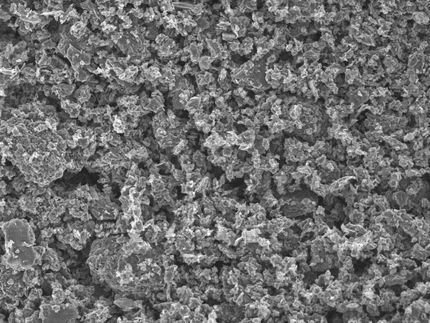Radioactive matter migrates more quickly through fractured carbonate rock
Advertisement
Researchers at Ben-Gurion University of the Negev (BGU) have found that radioactive matter migrates more quickly in carbonate bedrock formations once it has leaked from a tank from near surface waste sites and geological repositories.
Corroded stored waste containers can lead to radionuclide (radioactive) leakage, which may reach groundwater.
The study determined the impact of intrinsic colloid formation on increased migration of leaked radioactive materials in the environment. Colloids are microscopic inorganic or organic solids that remain suspended in water. Intrinsic colloids are formed when radioactive waste mixes with other dissolved components in the groundwater, such as bicarbonate.
"This study showed that intrinsic colloids formed by interactions between soluble Cerium (Ce) and carbonates significantly increase the mobility of Ce injected into a carbonate rock fracture," explains BGU Zuckerberg Institute for Water Research Director Prof. Noam Weisbrod, Ph.D. "The formation of intrinsic colloids, if not accounted for, could result in the under prediction of radionuclide migration through fractures in fine-grained carbonate bedrock, such as chalk."
In the study, Ce mobility as an intrinsic colloid was studied in an artificial rainwater (ARW) solution containing salt concentrations representative of those found in Negev Desert rainwater through a natural discrete chalk fracture.
In the United States at the Nevada test site, radioactive elements moved 1.3 kilometers from their source in just 30 years: significantly more than what was predicted from theoretical calculations. However, the extent to which intrinsic colloids contributed to this migration remains unclear.
"Determining the specific impact of intrinsic colloid formation by radioactive elements can aid in the development of migration models predicting radionuclide transport on a field-scale," says Prof. Weisbrod. "Thus, intrinsic colloids are expected to play an important role in actinide (radioactive elements) transport from nuclear repositories."




























































